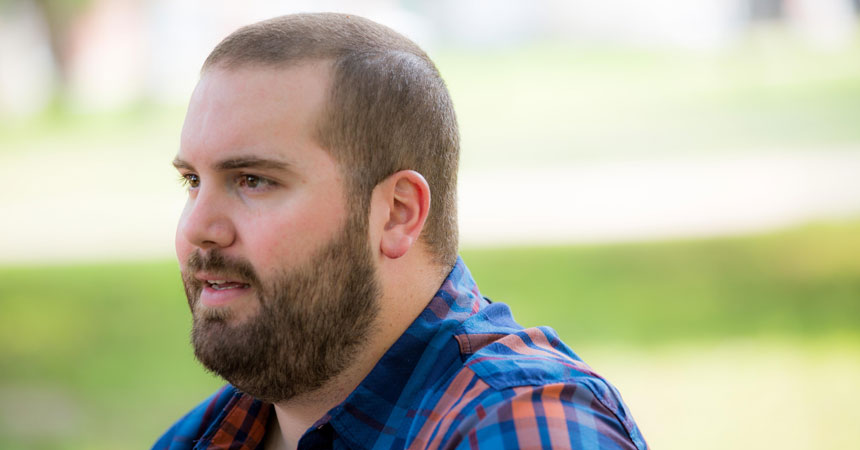Study: For vets, ‘mild’ TBI increases risk of early brain disease
By Jan Jarvis

Army veteran R. J. Hillman was riding back to base from a 17-hour mission in Afghanistan when the blast from an IED sent shock waves radiating through his truck.
Despite feeling dizzy, he immediately launched into his role as a medic. Later that night, his head ached. For the next 48 hours, he was unable to sleep. But over the next three days, his condition improved – or so he thought.
Six months later when he was back in the United States, his family members noticed the normally friendly and hyper-disciplined military man had become argumentative, forgetful and disorganized.
“Things changed for me,” he said. “I used to be the type of guy who folded his underwear. Now, I don’t even roll my socks in pairs.”
For some veterans, such behavioral changes could be just the beginning.

There’s growing evidence that a traumatic brain injury, even a mild one, can increase the risk for premature cognitive decline, Parkinson’s and Alzheimer’s disease, said Vicki Nejtek, PhD, Associate Professor in the Institute for Healthy Aging, and Pharmacology and Neuroscience. She is conducting research on veterans whose past brain injuries could put them at risk for these neurodegenerative diseases.
Every year, an estimated 1.5 million individuals sustain traumatic brain injuries (TBI), and approximately 75 percent of these are classified as a mild TBI.
In combat, IED explosions can trigger loud sound waves. Individuals might typically feel dazed, but they return to what they were doing and their symptoms often go unrecognized and undiagnosed, Dr. Nejtek said.
“This is not always a direct blow to the head,” she said. “Some people may not even realize the extent of their injury or what has happened to them until much later.”
To gain a better understanding of these injuries and their links to Parkinson’s or Alzheimer’s disease, Dr. Nejtek is studying veterans who are matched with healthy adults of the same age, gender, race and educational background.
The research goal is two-fold. Dr. Nejtek hopes to determine if biomarkers in the blood can identify those with mild traumatic brain injuries at risk for Parkinson’s or Alzheimer’s disease. She is also developing a cognitive profile that could further predict who is at risk.
Already she has found that veterans with mild traumatic brain injuries take longer to perform cognitive tests, and their scores are similar to those who are in their 70s.
“These are 25- to 45-year-olds who are performing on cognitive and decision-making tests as if they were 30 years older or more,” Dr. Nejtek said. “They’re already showing significant signs of premature cognitive decline.
“However, we really need to increase our numbers of healthy matched controls before we can make assertions about the impact of mild traumatic brain injury on future brain health,” she said.
While the study is focusing on veterans, the problem is not limited to the battlefield. People in everyday life can experience head injuries from contact sports or car accidents that could put them at risk for Parkinson’s or Alzheimer’s disease later in life.
Hillman, who now lives in Fort Worth with his wife and daughter, said his symptoms have improved, but he still has trouble sleeping. He kayaks and fishes to get his mind off how much a mild traumatic brain injury has affected him and the impact it could have as he ages.
“I’m nervous about the future,” he said. “I know what can happen.”
If you are interested in learning more about participating in this research study, contact Research Assistant Rachael James at 817-735-0133.



![Uyen Sa Nguyen Scaled[58]](https://www.unthsc.edu/newsroom/wp-content/uploads/sites/16/Uyen-Sa-Nguyen-scaled58-145x175.jpg)

Social media